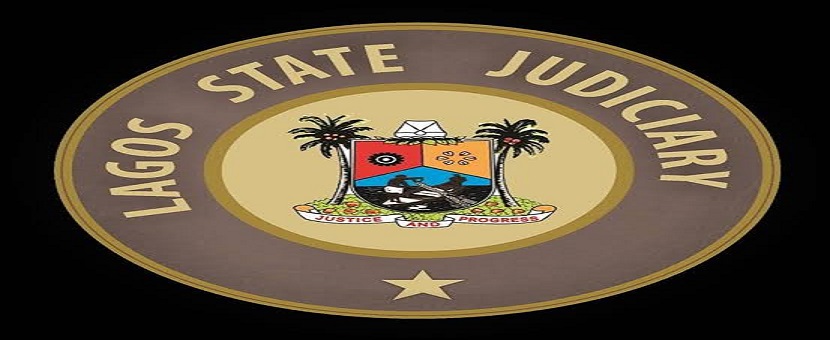Poised with the need to ensure continued access to justice while minimizing the risk of transmission of the coronavirus disease (“COVID 19”), the Chief Judge of Lagos State, Hon. Justice Kazeem Alogba (CJ), recently issued the Remote Hearing of cases (COVID 19 Pandemic Period) Practice Direction (“Practice Direction”). The Practice Direction is set to take effect from 4th May 2020.
Applicability
The Practice Direction is only applicable to:
- New cases where there is an urgency,
- Pending cases involving urgent and/or time-bound interlocutory applications such as bail applications,
- Fundamental Rights matters where the Applicant is in custody,
- Adoption of addresses,
- Rulings and judgments, or
- Any other matter as the Chief Judge may approve
For new cases where there is urgency, Counsel is advised to include an Affidavit of Urgency, stating facts that confirms the existence of an urgent situation. It appears every class of case would be welcomed under this head, provided there is urgency.
For pending cases involving urgent and/or time-bound interlocutory applications, the Practice Direction cited an example – bail applications. It can be reasonably concluded that not only bail applications would be entertained. Applications for injunction (especially interim injunction) may also be brought.
In the case of Fundamental Rights action, it appears that only fundamental rights cases involving the detention of the Applicant may be entertained. However, this is not precisely so. Where there is serious threat of a breach of fundamental rights, an action can be brought together with an application for injunction to prevent such breach or continuing breach.
Cases which are at the stage of adoption of written addresses are welcome. It is not expressly stated whether only final addresses are the target here. But it may be presumed so. This is because, “adoption of addresses” is the phrase common to final addresses.
Regarding the last class of proceedings to be entertained – Rulings and Judgments, it is clear that a case may be entertained during this COVID 19 era for the sole purpose of delivering a ruling or judgment.
The Chief Judge has a wide discretion to permit any other matter to be heard during this pandemic. To activate that discretion, Counsel may address a letter to the office of the Chief Judge where necessary, and especially where any person has been denied access on the basis that the proposed action is not the kind contemplated by the Practice Direction.
Objectives – Rule 3
The objectives of the Practice Direction are to ensure:
- Timely and efficient disposal of cases (within the contemplation of the Practice Direction);
- Use of suitable technology;
- Just determination of proceedings; and
- Efficient use of available judicial and administrative resources.
Innovations
The Practice Direction has amongst other developments introduced the following to the administration of civil and criminal justice system in Lagos state:
- Electronic filing of processes
Rule 5 of the Practice Direction mandates counsel or parties to input their email address and telephone number (of a contact person) on every process for filing.
Rule 6 mandates any counsel or party who intends to file a process to either scan the process or convert same to an appropriate pdf format. The Rule simplifies the filing process by providing parties with the option of forwarding the process for filing to the registry via designated email or WhatsApp. Although not stated in the Practice Direction, lawyers should consider adopting the use of WhatsApp Business.
Rule 8 further simplifies the filing process by providing the option of paying the assessed fee by electronic transfer into the bank account of the court. A copy of the electronic receipt is scanned and sent to the court for verification and the process is deemed filed when payment is verified by the court.
It is submitted that the Practice Direction did not provide answers to a number of questions that may arise with regards to the application of the above provisions. Where for instance an applicant desirous of filing a time-bound application, electronically pays the accessed fee, sends the electronic receipt to the registry for verification and the registry is (for some reason) unable to verify payment within the statutorily stipulated time for filing the process, what happens? It is submitted that the process should be deemed filed the date the payment was actually made and not on the date of verification.
More so, in cases of extreme urgency, the Registry may proceed with the filing, and the court should deem the process regular, subject to verification of payment.
It is however worthy of note that the manual style of filing at the registry may be resorted to where electronic filing becomes impracticable.
- Service of processes by electronic means
Rule 10 provides parties [notwithstanding the provisions of the High Court of Lagos State (Civil Procedure) Rules 2019] with the option of effecting service by email, WhatsApp or text message.
By Rule 12, service vide any of the above modes is proved by filing an affidavit exhibiting a printout from the electronic device showing the date and time of receipt of same by the other party.
Proof of receipt of process is crucial. However, issues may arise. For instance, it may be difficult to tell the exact point in time a document sent vide email or WhatsApp was received by the other party. Therefore, the court should accept proof of delivery. To help the system, Counsel must take responsibility in ensuring that the WhatsApp line(s) and email address(es) supplied are active. Spam folders should be checked always before being emptied. It is suggested that a party who sends a process electronically may consider taking a step further by putting a call through to the other party and same should be stated on the affidavit of service.
Rule 13 is emphatic on the point that time begins to run from the date the processes were sent.
- Remote hearings
In preparation for remote hearing, Rule 14 provides that parties and their Counsel should liaise with the Registry for the purpose of scheduling hearings. Rule 15 provides that parties or their Counsel may indicate voluntary participation in the remote hearing through the official email of the Court.
It is not clear what Rule 15 seeks to achieve by making reference to indicating voluntary participation. Nevertheless, this does not imply that any person unwilling to participate can hold the court and the other party hostage.
Rule 16 provides that remote hearings shall be by Zoom, Skype for business or any other video communication means approved by the court and Rule 17 mandates the registry to liaise with all counsel on record prior to remote hearings in order to ensure suitable facilities are available. Counsel and the court should also try to patronise strong network providers. Also, this is the time for lawyers to imbibe conciseness and aptness in drafting and oral presentations.
Rule 18 mandates the registry to publish notice of remote hearing on the judiciary website and communicate such notice to counsel or the parties vide email, WhatsApp or any other electronic means the court may direct.
Rule 20 mandates Counsel appearing for the remote hearing to dress appropriately and the parties to dress properly.
What amounts to appropriate dressing for lawyers was not defined. For lawyers, appropriate dressing may be the wig and gown (where the remote hearing is before the High Court). However, it is submitted that formal dressing should be considered appropriate. The wig and gown should be relaxed, at least, this period. It is submitted that this might be a better time to consider doing away with the agelong tradition of the wig and gown totally.
Rule 22 provides that parties may only record the remote hearing with the leave of Court. It is doubtful as to how compliance with the above rule can be enforced.
- Notice of delivery of Judgment or Ruling
Rule 25 mandates the court to communicate to counsel or parties of the reserved date for judgment or ruling either by email or WhatsApp. It is our view that on such proceedings for ruling or judgment, the court may simply read out the summary of the decision, while full version should be made available via email or WhatsApp.
Conclusion
The Practice Direction by the Chief Judge of Lagos State is indeed a welcome development and would go a long way in enhancing justice delivery in Lagos State during this COVID 19 era. Other States of the Federation that are yet to adopt this laudable development should do well to follow suit. It is recommended that lawyers, judges and other stakeholders in the industry should equip themselves with the requisite technological skills in order to flow with the tide.














